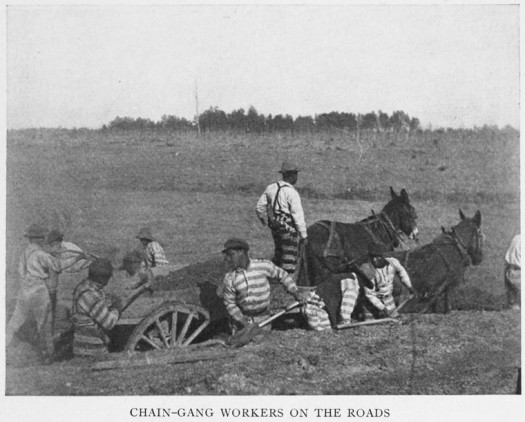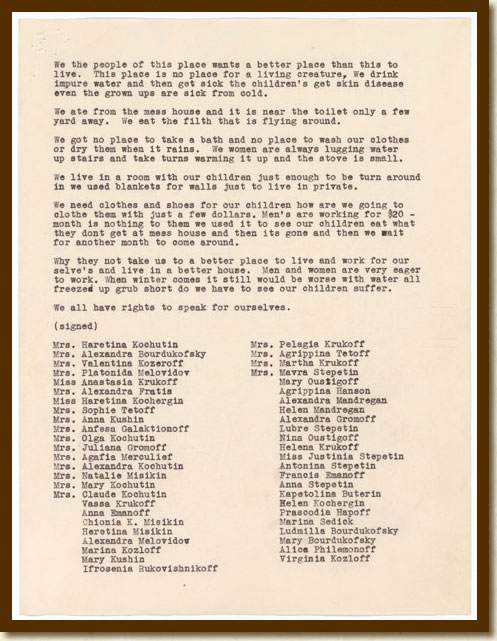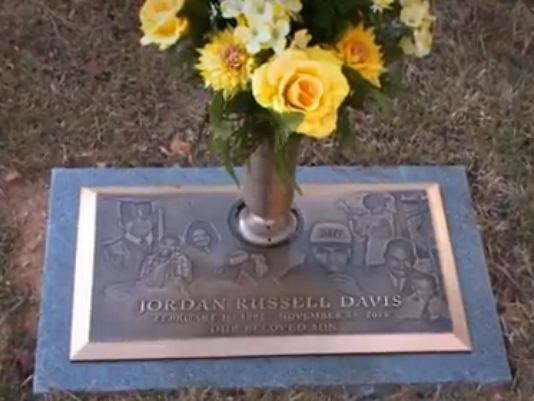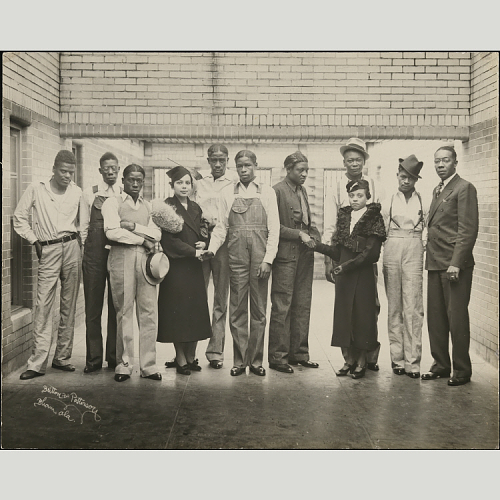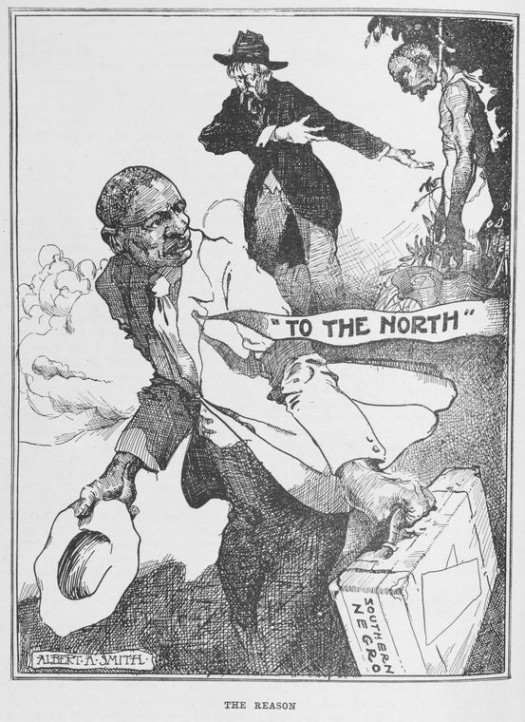Yesterday was Audre Lorde’s 80th birthday. I didn’t plan to write anything about her work. I have nothing interesting to contribute. [You can stop reading here.] I came to Lorde in graduate school. Since then, I’ve read and re-read her essays and poetry countless times. Her work still feels slippery to me because she writes about life: its challenges, beauty and most of all its complexity. So my understanding changes as I grow older and experience more of life. I return to her in particular when I find myself losing hope. She has a way of making me feel less defeated by the vagaries of living. It’s not because her work provides me with “answers” but rather that she seems to be searching and uncertain too. She remains above all, profoundly human and so flawed like all of us. It’s comforting and she always makes me feel less alien and alone.
“I do not even know all their names.
My sisters deaths are not noteworthy
not threatening enough to decorate the evening news…”
In 1979, after twelve Black women were murdered in Boston over the course of just a few weeks, Audre Lorde was moved to write “Need: A Chorale For Black Woman Voices.” She explained:
“I wrote Need: A Chorale for Black Woman Voices because I felt I had to use the intensity of fury, frustration, and fear I was feeling to create something that could help alter the reasons for what I felt. Someone had to speak, beyond these events and this time, yet out of their terrible immediacy, to the repeated fact of the blood of Black women flowing through the streets of our communities — so often shed by our brothers, and so often without comment or note. Or worse, having that blood justified or explained away by those horrific effects of racism which we share as Black people.”
Unfortunately the assaults against Black women are unrelenting. Black women continue to be beaten, stalked, raped, imprisoned, disappeared, and murdered. We are still fighting for our lives. Marissa Alexander is one such black woman and this past Sunday, over 30 people gathered to make art in her name.
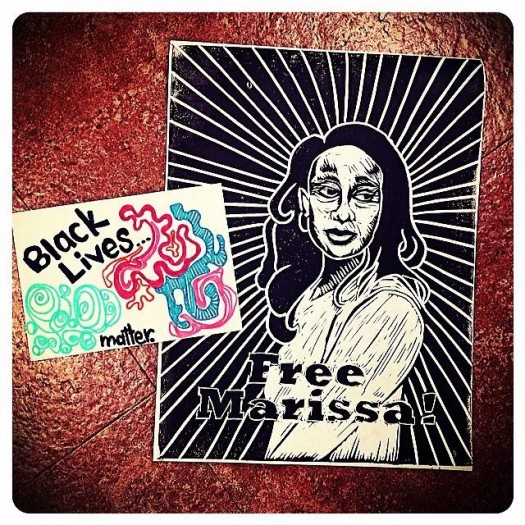
by Sarah Jane Rhee (2/16/14)
The idea for an art party was suggested by my friend Sarah Jane Rhee after we organized a dance party fundraiser for Marissa’s legal defense fund last December. I agreed to find a space to host the party and then I reached out to members of the Chicago Alliance to Free Marissa Alexander (which formed out of a teach-in I facilitated in September) to organize the event. So many people came through to support the effort; it’s heartening.
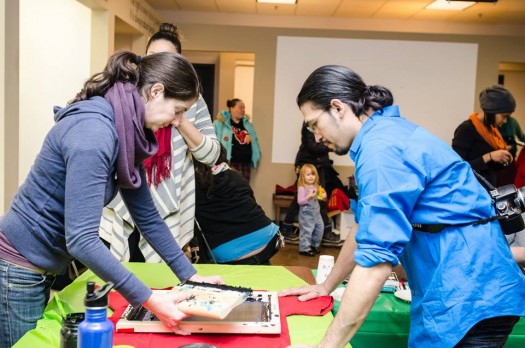
Free Marissa Art Party by Sarah Jane Rhee (2/26/14)
Early last year, I wasn’t feeling as hopeful. Instead, I found myself consumed by low-grade fury that Marissa Alexander was getting insufficient attention. I’ll admit that I was particularly angry at black men who organized for Trayvon Martin while passively sitting by as Marissa was railroaded by a racist, sexist, and heterosexist system. Then came #31forMarissa launched by Esther Armah and me. Suddenly, black men were contributing to lifting up Marissa’s struggle. I felt… relieved. The fury lessened. Maybe Black men wouldn’t take leadership in fighting for Black women’s lives but they would join the struggle if invited to participate. And this, for the moment, offered some solace and affirmation. It takes so little, really.
“I dream of your freedom
as my victory
and the victory of all dark women
who forgo the vanities of silence…”
Women activists responding to the murders of black women in Boston in 1979 marched in the streets in protest carrying a banner with a line from a poem by civil rights organizer Barbara Deming which read: “WE CANNOT LIVE WITHOUT OUR LIVES.” In the preface to Need, Lorde cites this as her “lasting image of that spring, beyond the sick sadness and anger and worry.”
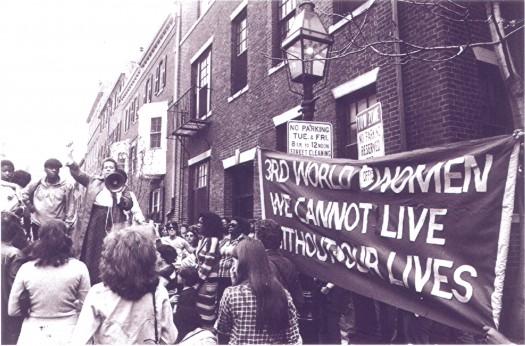
Boston, 1979
On Sunday, I sat in circle with friends and new acquaintances laughing, crying, listening and sharing thoughts. We spoke our disappointments, our fears, and our hopes. We spoke Jordan Davis. We spoke Marissa. We spoke loss and love. Our speaking was resistance against the murders, the violent erasures, and the dehumanization of black people.
For many years, I focused primarily on banding with others to yell “NO.” I was saying no to the status quo, no to the way that the world currently is. This was an important form of protest. It saved my life in many ways. As I’ve grown older, I’ve become more interested in joining with others to build the world in which I want to live. That has meant embracing “YES.” Yes to practicing compassion, yes to learning forgiveness, yes to doing more listening, yes to simply being. Sitting in circle with others, creating art, sharing stories, these are an embrace of the “Yes” of movement-building. We must find new ways of living together. For me, circles are a good way to practice building trust and community. We desperately need each other if we are to live fully and we cannot live without our lives; Audre consistently reminds me of this.
